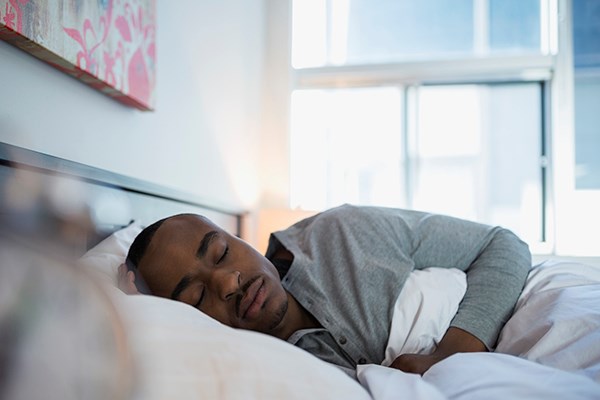
A Hard Day’s Night: When You Can’t Get the Sleep You Need
Has stress been keeping you up at night? Are bad nights making for worse days?
You’re not alone. In fact, according to the Centers for Disease Control and Prevention, one in three American adults don’t get the sleep they need.
Even if you’re getting the recommended number of hours of sleep — typically seven to nine hours a night — you may not wake refreshed. How can you know if you have a real sleep problem?
The importance of sleep and sleep patterns
The right amount of sleep is important for mental and physical health. Sleep impacts everything from mood and concentration to heart health.
Because of that, it’s good to keep track of your sleep patterns so you notice if something changes. Some disruptions can be caused by major life events or changes — like moving, welcoming a new family member, getting a new job or starting at a new school.
Sleep patterns also change naturally as we age. Usually people sleep less as they grow older, but some sleep longer. Regardless of age, some people seem to need fewer hours of sleep a night than others.
However, if there are changes to your sleep that concern you, it’s time to check with a sleep doctor. Sleep medicine specialists suggest that if sleep is ever unrefreshing, further investigation is warranted. A sleep doctor can check for problems like sleep apnea or restless leg syndrome and further look into sleep disruptors such as pain issues or sleep environmental problems — such as a snoring partner or a too-bright room.
More, it is important to note that sleepiness can be linked to mood. Part of the diagnosis of depression asks whether sleep is being affected. Depression may be linked to longer sleeping hours so this should also be considered as a cause for a change in sleeping pattern or habits.
The nightmare of bad dreams
Dreams are one way our sleep can be disrupted, especially when we have nightmares. They can happen at any age. Nightmares can even become so recurrent that people become afraid to fall asleep.
There is a lot we don’t know about dreams and nightmares, according to sleep medicine specialists. Unfortunately, many patients tend to have nightmares in the setting of post-traumatic stress disorder (PTSD). Other triggers include stress, loss of a loved one and major life events.
Though nightmares are common and normal, it is recommended you seek the help of a sleep specialist if nightmares keep happening and cause any of the following:
- Mood disturbances, such as depression
- Anxiety about going to bed
- Difficulty concentrating or remembering
- Negative impacts on family life
- Behavioral problems (especially fears)
- Daytime sleepiness
- Fatigue or low energy
- Impairment to relationships or socializing
- Negative effects on work or schoolwork
When you can’t sleep a wink
Perhaps one of the must common sleep frustrations is insomnia, which can mean either you can’t get to sleep or you can’t stay asleep. Often it only strikes for a night or two, but sometimes it lasts longer.
If insomnia occurs more than three times a week, it’s a good idea to talk to your health care provider. Seeking help is important when any sleep issue makes it hard for you to function during the day, whether at work or school or around family and friends. Daytime sleepiness and fatigue are also reasons to check with your doctor or nurse practitioner.
For relief of short-term insomnia, many people use over-the-counter sleep aids like Tylenol PM. Most of these actually use the same active ingredient as Benedryl, which can have some side effects, especially for older adults.
Other options include the herb valerian and the sleep supplement melatonin. These may have fewer side effects but still have some problems to consider. For instance, melatonin comes in many dosages so it’s hard to know what to take. Higher dosages make some people groggy the next day. It is always recommended you speak with your doctor because there can always be side effects and drug interactions with any medication, including over-the-counter ones.
Getting the sleep help you need
Whether you’re sleepless in Seattle or Portland, you don’t have to suffer alone. The sleep doctors at the Adventist Health Portland’s sleep clinic are experts at looking at a wide range of factors that can disrupt sleep. They’ll work with you to create a plan to get you the sleep you need and deserve.
If you need help with your sleep, just call 503-261-4475 for an appointment. Our team will have you back to dreamland in no time.


